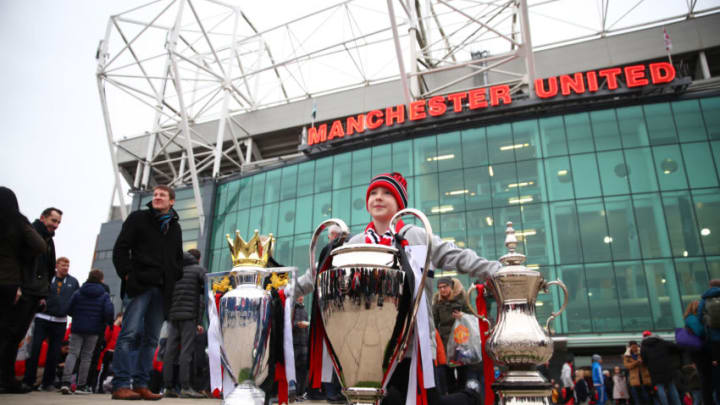Here’s why a new proposal to create an 80-team club competition for European teams is be the best way to shake up the world’s biggest soccer tournament.
There’s never a shortage of ideas and controversial thoughts to come from Napoli owner Aurelio de Laurentiis when a microphone is shoved before him. A delight to journalists and headline writers alike, de Laurentiis is floating a new plan: Dump the Champions League and Europa League.
Indeed, that was the headline on Monday after de Laurentiis gave an interview to Italian daily Corriere della Sera. The plan is bigger than that. In place of the tournaments, de Laurentiis would like to see a massive, 80-team club competition with matchdays (much like a domestic season) followed by playoffs (like the current knockout-round format).
“The Champions League and the Europa League must be abolished,” De Laurentiis said. “The Champions League is now for a select few, while the Europa League has become a sort of consolation prize.”
Do you agree with @sscnapoli president Aurelio De Laurentiis? https://t.co/dpIGlG0aeP #UCL
— beIN SPORTS (@beINSPORTS_AUS) May 7, 2019
How would it work? De Laurentiis said the single tournament, called the European Cup, would feature “the top seven teams from the Italian, French, English, German and Spanish leagues would enter, and the first four of the other leagues.”
Here’s three reasons why the plan is a good one.
It would stave off talk of a Super League
Yes, the idea that 11 elite teams would break off and form their own separate “Super League” by 2021 is a reality FIFA, UEFA and the smaller clubs have had to deal with over the past year.
Under the Napoli owner’s proposal, matches would be played on Tuesday, Wednesday and Thursday, thus not interfering with domestic leagues on weekends.
Talk of a breakaway European league is nothing new. It’s the reason why UEFA reformed the European Champions’ Cup (at the time a straight knockout competition) and transformed it into the expanded (and more financially lucrative) Champions League in 1993. That old tournament had become outdated in the age of television and marketing.
The current Champions League, as the plan states, does need a makeover, but it has become somewhat predictable. This plan does it without sacrificing the continent’s domestic competitions. It’s the panacea this competition needs in the digital age.
Gives smaller teams a shot
Teams that would not normally make the Champions League, and play against top clubs, would under this plan. Europe has many haves and have-nots when it comes to money and the ability to buy the best players from around the world. That money often translates into the same club contending for the trophy.
Real Madrid, for instance, have won the last three Champions League trophies. It should come as no surprise given their payroll, talent and overall resources. A larger round-robin format, followed by playoffs would add more parity to the competition.
As de Laurentiis warned, there needs to be more competitiveness across Europe. Allowing the top seven teams to qualify would give more meaning to Europe’s top four league tournaments. It would involve more teams, essentially turning domestic competition into a European qualifiers on a much broader scale. As a result, smaller clubs would make more money and gain wider visibility.
Eliminates Europa League consolation prize
The old UEFA Cup had lots of prestige back in the 1980s, for example, when Italian clubs dominated the scene. These days, the Europa League is the NIT Tournament of European soccer, a competition teams don’t want to play in.
This plan eliminates the Europa League altogether. It may be a blow for nostalgics and Spanish clubs that have made it a habit of winning it in recent years, but no one is likely to miss it.
Overall, de Laurentiis’ plan is a solid one. It would streamline club competition, allow all teams involved and UEFA to make more money and generally improve the quality of the world’s greatest club tournament. Can the Champions League get better? This plan is proof of it.
